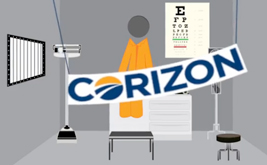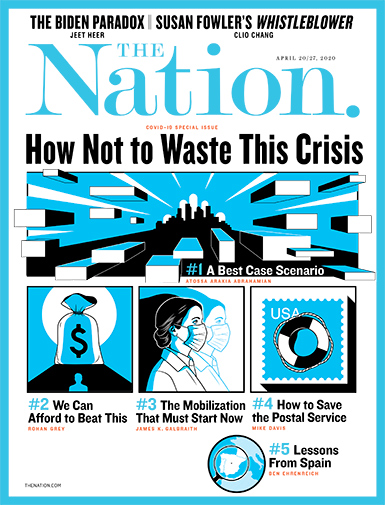
Ten Steps Bill de Blasio and Bill Bratton Should Take to Fix Stop-and-Frisk Ten Steps Bill de Blasio and Bill Bratton Should Take to Fix Stop-and-Frisk
The road to police reform begins with community participation and a court-appointed monitor.
Dec 20, 2013 / David A. Harris

North Carolina Shows Why the Voting Rights Act Is Still Needed North Carolina Shows Why the Voting Rights Act Is Still Needed
A challenge to North Carolina’s sweeping new voting restrictions will be heard in court next summer.
Dec 12, 2013 / Ari Berman

When Did ‘To Serve & Protect’ Become ‘To Seize & Profit?’ When Did ‘To Serve & Protect’ Become ‘To Seize & Profit?’
How police across the country are using civil asset forfeiture to seize people’s houses, cars and cash to make money for their departments.
Oct 29, 2013 / Jesse Lava and Sarah Solon

JPMorgan, Outlaw JPMorgan, Outlaw
Maybe it’s not too big to face criminal charges after all.
Oct 23, 2013 / William Greider

Meet the Medical Company Making $1.4 Billion a Year Off Sick Prisoners Meet the Medical Company Making $1.4 Billion a Year Off Sick Prisoners
In states that use Corizon to provide healthcare in their prisons, medical neglect and abuse run rampant.
Oct 8, 2013 / NationAction

Tell the FCC: Prison Phone Companies Shouldn’t Profit Off Indigent Families Tell the FCC: Prison Phone Companies Shouldn’t Profit Off Indigent Families
Prison phone companies like Global Tel* Link get away with charging prisoners exorbitant rates just to keep in touch with their families. Tell the Federal Communications Commission...
Oct 1, 2013 / NationAction

Edward Snowden and Chelsea Manning, the New Dissidents? Edward Snowden and Chelsea Manning, the New Dissidents?
The United States is no Soviet Union—and yet it has set up machinery that satisfies certain tendencies that are in the genetic code of totalitarianism.
Sep 4, 2013 / Jonathan Schell

I Only Regret That I Have But One Life to Give for My Country: Yours I Only Regret That I Have But One Life to Give for My Country: Yours
The crime of the century.
Aug 6, 2013 / Tom Engelhardt

Help Iraqis and Iraq Veterans Gain the Right to Heal Help Iraqis and Iraq Veterans Gain the Right to Heal
Iraq Veterans Against the War and human rights organizations in both the US and Iraq are collecting signatures for a petition to pressure the Inter-American Commission on Human Rig...
Jul 16, 2013 / The Nation Video

Race at the Supreme Court Race at the Supreme Court
Affirmative action survives, for now, but the Court erects new hurdles for employment discrimination suits.
Jun 24, 2013 / David Cole
